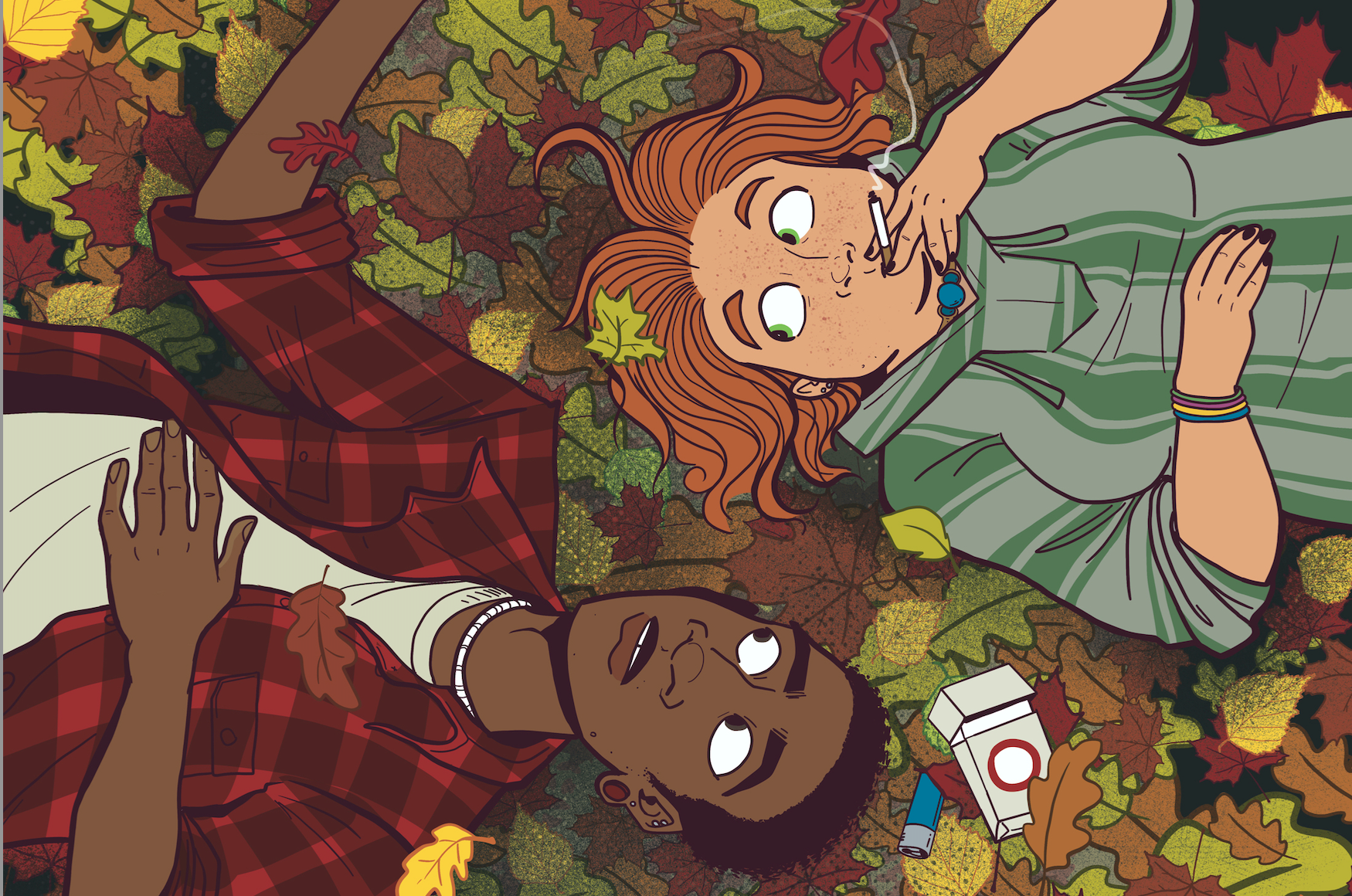
By Hannah Reynolds
The other day, a twenty-something woman told me her reaction to my latest book: I wish I’d had this book when I was a teenager.
I was pleased and slightly startled. I wrote ‘Eight Nights of Flirting’ because I love Christmas romances, but wanted one closer to my own experience. So I created my own holiday romcom – this one set at Hanukkah. But I hadn’t thought about what it would have been like to have a Hanukkah romcom as a teenager.
When I think back to the books my younger self read growing up, I’m a little sad and a little angry – because I realize I do wish I’d had something similar to ‘Eight Nights’ when I was a teen. I read bucketful of books, contemporary fiction and fantasy and romances, and I loved so many of them; I saw so much of myself reflected in many bookish heroines. But I never saw the Jewish part of my identity represented, except in Holocaust literature.
I knew better than to ask a librarian for a Jewish romance or expect a Hanukkah romcom at the bookstore, because they didn’t exist. I was so used to never seeing happy Jewish stories that I wasn’t even mad about it. It was just the way things were.
The way things were in the literary world while I was growing up:
In tenth grade English class, every single book on the syllabus was by a white man. I brought it to the attention of my teacher. “Huh,” he said. “I hadn’t noticed.”
In college, I studied creative writing. Our professors taught us that serious writers wrote about serioustopics. Once, I turned in a short story with an uplifting ending. My professor left a note at the end: What if instead of ending with hope for the teenage couple, the girl broke the boy’s heart?
When I started writing professionally and told people I wrote romances, they asked, “And do you ever plan to write something real?”
I started to realize, explicitly, what had been taught to me as a child: only a certain kind of art was valued by a large function of society. I realized I didn’t agree with this, with what other people told me was important. I knew what I loved: uplifting stories celebrating girls and women. Even when I was told they were fluff and encouraged to read and write other things, I understood a core truth about them – these stories brought me happiness. Writing them brought me happiness, and reading stories like them brought me happiness, and no one should ever undervalue the power of happiness in the world.
“Laughter is the best medicine” goes the axiom, and science backs it up: Laughter is a stress reliever with many benefits, from lowering blood pressure to strengthening the immune system. It was easy for me to understand the importance of joy, because it made such a huge positive impact on my own life.
I understood the importance, too, of stories that made girls more confident of their place in the world, that showed them they could have adventures and be bold and strong and have positive friendships and romances. I knew I wanted to write stories that focused on female relationships and positive outcomes. I wanted young women – all women – to see themselves overcoming adversary and finding happiness.
But I had seen those stories all my life – they had been the cornerstone of my childhood, they had made me who I was, ‘Anne of Green Gables’ and ‘Pride and Prejudice’ and ‘The Wonderful Wizard of Oz’. It took me longer to realize I wanted Jewish heroines in my stories, because I had seen so few examples of happy Jewish stories, and it was hard to envision something I hadn’t seen.
Representation is critically important, especially in children’s literature. Books impact young readers profoundly, often staying with them their entire lives, shaping who they are and how they think about the world. Books can shape how they think about themselves, too. I hadn’t thought my Jewish identity could be attached to happiness, because it never had been in fiction while I was growing up. It took me a long time to realize such a happy story might be important, because teachers and professors spent a long time telling me positive stories didn’t matter.
But the more I wrote, the more I realized I would like to see more of myself in the pages; more importantly, I wanted today’s young Jewish women to see themselves. I wanted them to see themselves being happy and celebratory and existing as more than a morality lesson in a Holocaust tale. I didn’t know enough to wish for this kind of book when I was younger; I never dreamed something like it could exist. Now, I want to make sure today’s readers have stories that tell them their joy and happiness are important and achievable and real.
When I wrote ‘Eight Nights of Flirting’, a romantic comedy for teenagers set over Hanukkah, I put everything I love about the holidays into it: a house full of decorations, the crisp winter air, sizzling latkes, songs I’ve sung my whole life, the scent of melting candles. I wanted joy in a book, and laughter and love and happiness.
I want reading ‘Eight Nights of Flirting’ to make people feel like they’ve been hanging out with their best friend all day, like they just downed their favorite seasonal beverage, like it’s their favorite holiday and the world is bright and full of potential. It’s a powerful feeling, the feeling of optimism, the feeling of your future being yours.
I want all girls to be able to access that feeling. I want everyone to realize their happiness matters, and I hope this book helps.

Hannah Reynolds grew up outside of Boston, where she spent most of her childhood and teenage years recommending books to friends, working at a bookstore, and making chocolate desserts. She received her BA in Creative Writing and Archaeology from Ithaca College, which meant she never needed to stop telling romantic stories or playing in the dirt. After living in San Francisco, New York, and Paris, she came back to Massachusetts and now lives in Cambridge.
‘Eight Nights of Flirting’ is Hannah’s second YA novel. In snowy seaside Nantucket, 16-year-old Shira Barbanel wants one thing this Hanukkah season: a boyfriend. And she has the perfect guy in mind: her uncle’s reliable, brilliant, and hot intern, Issac. There’s only one problem: she’s terrible at flirting. Enter Tyler Nelson, Shira’s nemesis-slash-former-childhood-crush, who is a pro at flirting. Even though she hates to admit it, Tyler is the perfect tutor (maybe a little too perfect?). They strike a deal: flirting lessons for Shira in exchange for career opportunities for Tyler. It’s the perfect compromise–until they get snowed in together. As the eight nights of Hanukkah turn into EIGHT NIGHTS OF FLIRTING, Shira begins to see the sweet, funny boy beneath Tyler’s playboy exterior. Will the ice melt between these two before the snow thaws?
















